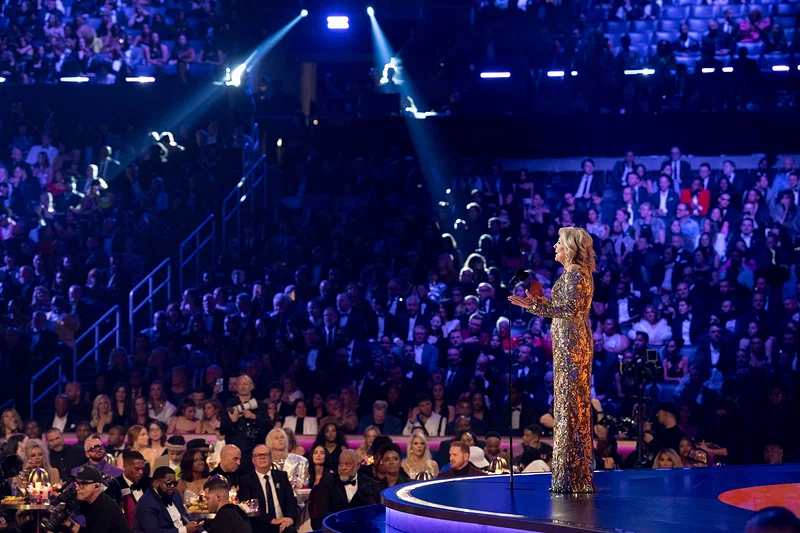I had uncertain expectations for the Grammys this year, but they somehow managed to exceed them in terms of disappointment. It was diabolical!
I’m still grappling with the Academy’s mysterious voting criteria and whose standards we’re dealing with here. Surely, it wasn’t based on talent or originality, but I’m not sure it ever was.
Was it out of fear of the backlash from fandoms? Maybe. Or how many times a song was played in a mall department store? Definitely. Don’t get me started about “Flowers.” No amount of childhood nostalgia could justify that decision.
I’m afraid there was some virtue to Jay-Z’s snide comments. Three Black women have won Album of the Year since the first ceremony held in 1959: Natalie Cole in 1992, Whitney Houston in 1994 and Lauryn Hill in 1999. Taylor Swift has won four times in this particular category alone in the past decade and a half! She has won more times than every Black woman who has ever won it, combined.
The cultural timelessness and artistry of “The Miseducation of Lauryn Hill” and Lauryn Hill herself represent everything of someone and something deserving of a Grammy.
Swift didn’t emulate these qualities four times, but perhaps she is the best at staying relevant. Maybe that’s the crux of it. Frankly, I don’t care about the flavor of illogical reasoning the Academy indulged in, because the only attribute she had that the other nominees didn’t was a cult-like following.
God forbid a Black woman sweep the awards like so, so many white women have in the past (such as Adele, Billie Eilish and Olivia Rodrigo). They all had a spectacular year on the charts and were fruitfully rewarded.
SZA had this kind of year in 2023 with “SOS.” The album expanded on her versatility and genre-bending talent. She switched from singing to rapping, exploring anything ranging from folk-pop to electronica. She curated an incredibly relatable but personal narrative that echoes a prevalent, consistent uncertainty with the help of carefully chosen collaborators. The work in its entirety should have been compensated accordingly. But it wasn’t, reminiscent of the incredible loss for “Lemonde” back in 2016.
In no way are the results the fault of the artists, but the choices are monotonously predictable at this point. The most prestigious musical awards that should honor musical excellence have turned into a popularity contest. They might as well start crowning people prom royalty and give them sashes instead of gold-plated gramophones.
Despite this disappointment, the Grammys could regain a new essence by recognizing and celebrating artists’ authentic contributions, moving beyond the current trend of favoring popularity over artistic merit.
Brandi Carlile’s introduction for the songwriting legend Joni Mitchell perfectly captures the injustice of misplaced credit. She described Mitchell to be a pioneer of writing from the soul since it was her accessible resource, due to the plethora of unfortunate circumstances in her life.
However, did anyone listen to blues in the decades before…or perhaps soul? The names of the genres say enough.
Amid this dissonant narrative, it becomes apparent that the Grammys, once a bastion of musical distinction, risk losing their way in the glittering spectacle of mainstream approval, leaving a discordant note in the celebration of true artistic mastery.









